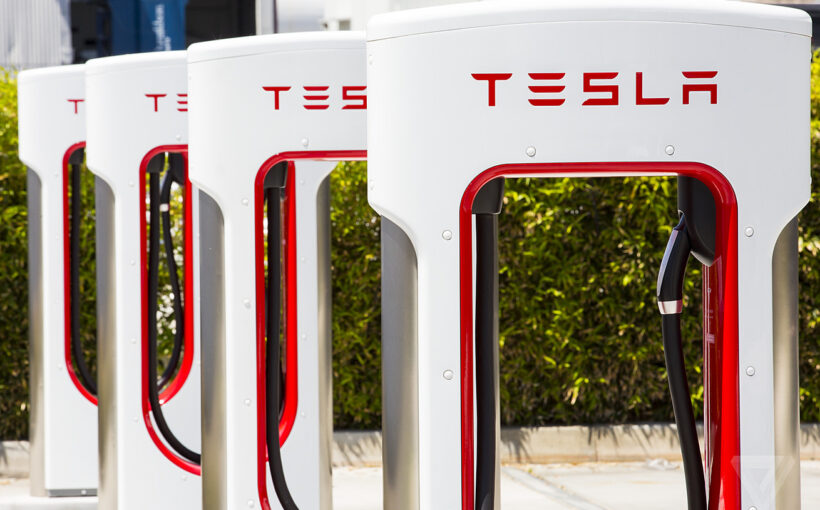
Tesla is using a new fee to encourage people not to charge their cars to 100 percent at busy Supercharger locations. In the US, the Supercharger Congestion Fee kicks in after a car hits 90 percent charge, at which point drivers will be hit with a $1 fee for each minute they continue to charge their vehicles. The company’s support page says the fee will apply at “certain Supercharging locations” when they’re busy.
The launch of the fee arrives ahead of Thanksgiving in the US, which is traditionally a time when lots of people travel to see family. But it also comes as Tesla is opening up its Supercharging locations for use with non-Tesla EVs, which has the potential to increase demand for its charging network (though in the longer term this might not be an issue as others like ChargePoint adopt Tesla’s NACS charging standard).
This is just the latest measure adopted by Tesla as it attempts to manage capacity of its Superchargers. It already charges idle fees when owners leave their cars plugged in after they’ve completed charging, and the new congestion fee will replace this idle fee in locations where it applies. At some locations Electrek notes it’ll also default to limiting a car’s maximum charge to 80 percent to reduce wait times (though this default can be overridden by owners who need a full 100 percent charge).
Batteries typically charge slowest over the last 10 to 20 percent and Tesla’s app itself sometimes recommends limiting charge levels to a reduced level like 80 percent for daily driving. Limits like these are often recommended to maximize battery health and longevity.
You’ll know when a congestion fee is about to apply thanks to a notification that’ll appear in the Tesla app, which will give five minutes to unplug a car and avoid being hit. There’s no upper limit to how high these fees can get, and they’ll also apply for owners with free Supercharging. It’s unclear if or when the congestion fees could roll out internationally — Tesla’s support page currently only includes details for US customers.



